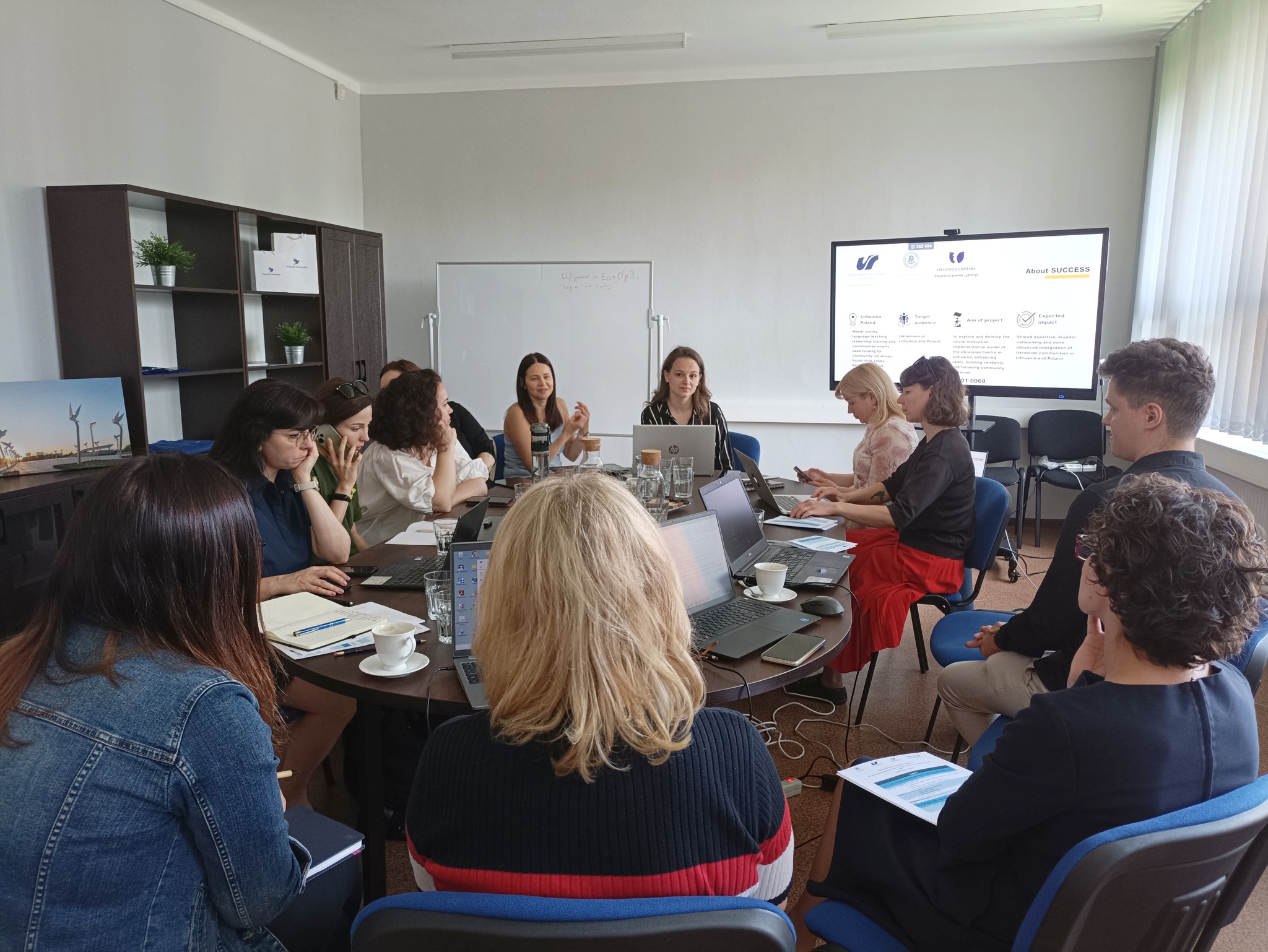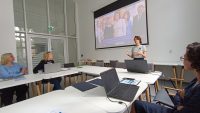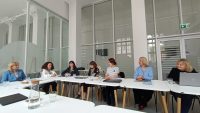Empowering Displaced Ukrainians: VMU Ukrainian Centre Marks Milestone in Social Innovation

Established through the initiative of the First Ladies of Lithuania and Ukraine on June 11, 2022, Vytautas Magnus University’s (VMU) Ukrainian Centre in Vilnius has become a vital support hub for Ukrainians displaced by war. The Centre offers a wide range of services and activities—from language classes and cultural programs to psychosocial support—designed to help Ukrainians rebuild their lives and integrate into local communities throughout Lithuanian regions.
On 9-11 June, a new stage in the activities of the Ukrainian Centre started with a kick-off meeting of the international project SUCCESS (Socially innovative Ukrainian Centres in Central Europe: Empowerment and Social Support), implemented by the teams of VMU and the University of Silesia (US). The project’s focus includes analysis of the needs of Ukrainians as well as training Ukrainian community leaders to build a regional leadership network, establishing of seed funding for local Ukrainian initiatives, support of Youth Think Tank programme for young Ukrainians, Poles, and Lithuanians in a dialogue with academics and decision-makers, language courses, Summer Camps, Saturday Schools and other initiatives.
The project kick-off meeting began at the University of Silesia in Katowice, where 8 project representatives from VMU met the Polish partners. The US representatives—Vice-Rector Prof. Tomasz Pietrzykowski and the Dean of the Faculty of Social Sciences, Prof. Małgorzata Myśliwiec—opened the gathering with welcoming words of encouragement.
Prof. Tomasz Pietrzykowski emphasised: “We are proud that the University of Silesia is involved so deeply in helping students and researchers from Mariupol State University and the Ukrainian community at large. We’d like the Mariupol Center that we established last year here in Katowice to become one of the bridges by which the Ukrainian academic community will soon pass to the European Union. I am sure that the great experience of VMU Ukrainian Centers in Vilnius and Kaunas will be very helpful to develop a robust and sustainable foundation for the enhanced cooperation in our part of Europe”.
The presentation of the VMU Ukrainian Centre in Lithuania offered an insight into the project’s inspiration. The centre’s three years of experience have shown the true potential of socially innovative hubs for displaced communities in Lithuania and Poland.
A highlight of the opening session was the signing of the Cooperation Resolution on the Development of Ukrainian Centres in Lithuania and Poland. SUCCESS project leader, VMU Vice-Rector Vilma Bijeikienė, and US Vice-Rector Tomasz Pietrzykowski signed the resolution affirming the shared commitment to the initiative of the 18-month-long project cooperation and beyond.
“Our SUCCESS project shows a strong commitment of VMU and USIL teams to cooperate in sharing expertise, building stakeholder networks, and advancing the inclusion of Ukrainian communities in Lithuania and Poland. It is a beautiful teamwork of Lithuanians, Poles, and Ukrainians to create and ensure our common meaningful and peaceful future”, said VMU Vice-Rector for Communication Vilma Bijeikienė.
The kick-off meeting also focused on collaborative planning and a strategic session on engaging stakeholders involved in supporting displaced Ukrainians across Lithuania and Poland, organizing community accelerator training, setting up the Language Learning Framework, expanding the Youth Think Tanks initiative, and other goals related to supporting Ukrainians.
This three-day gathering not only established the strategic and operational framework for the project between two universities, Transform4Europe Alliance partners, but also reinforced a shared commitment to empowering displaced Ukrainian communities through innovation, collaboration, and solidarity.
***
Funded by the European Union. Views and opinions expressed are however those of the author(s) only and do not necessarily reflect those of the European Union or European Social Fund Agency. Neither the European Union nor the Granting Authority can be held responsible for them.




















